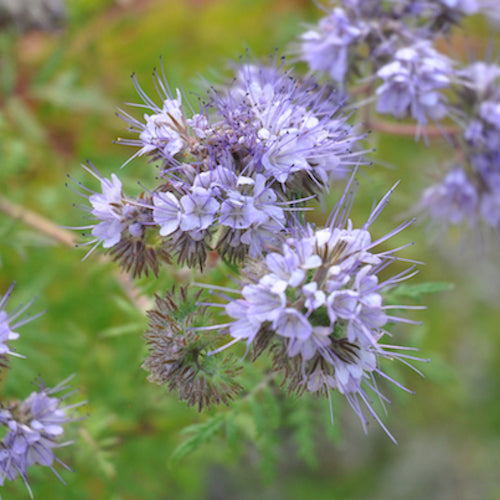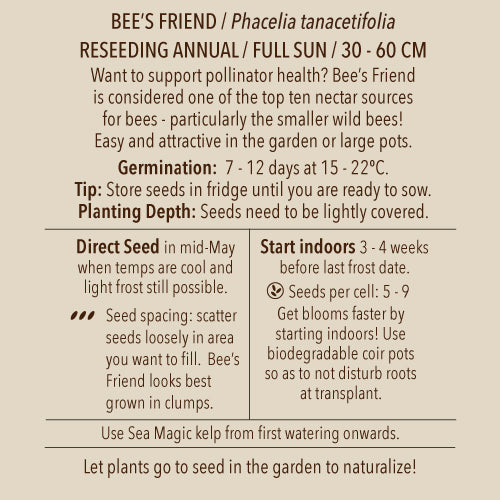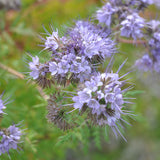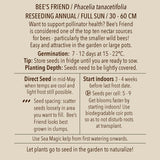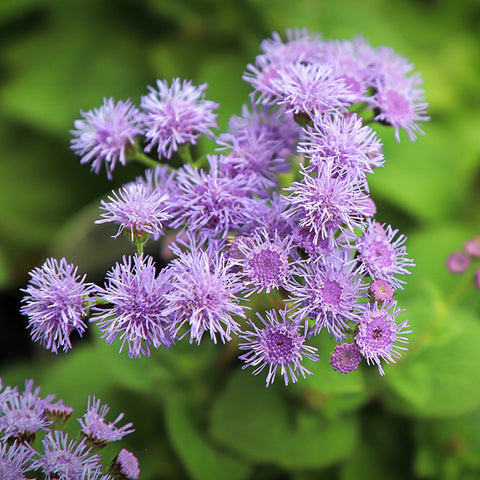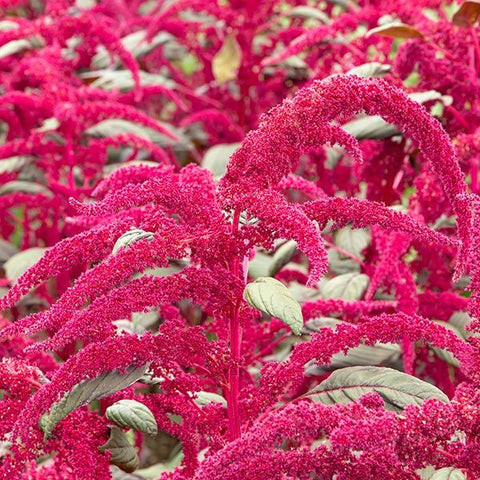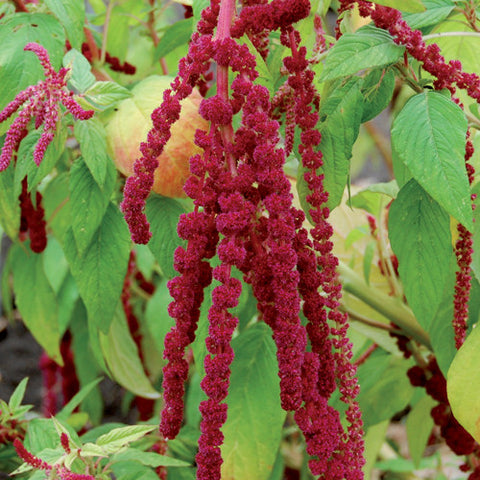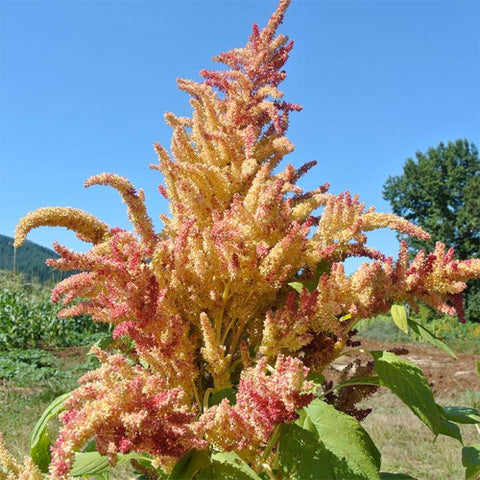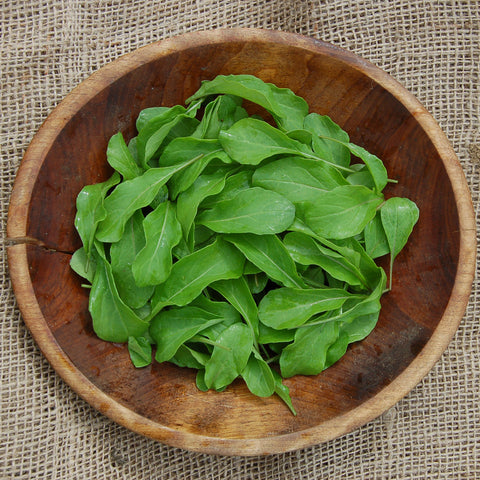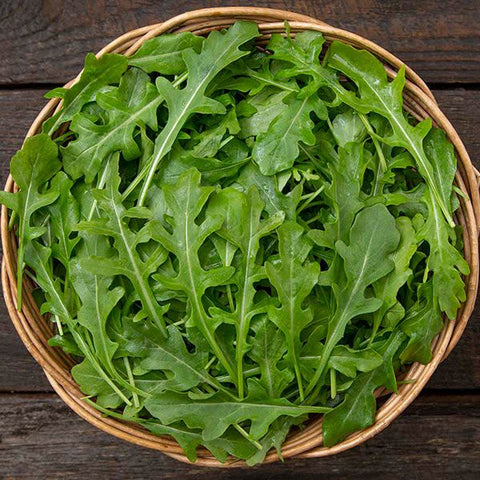Phacelia, Bee's Friend (Organically Grown Seeds)
$4.79
This item may be out of season or currently out of stock. Please check back.
Description: Lacy Phacelia is considered one of the top food sources for honey bees, bearing nectar-rich purple flowers for much of the summer. It is also an easy plant to grow, either in bold "pollinator patches" or intermingled among herbs, veggies, or other ornamentals. The seeds do best direct-seeded to their summer destination and can be sown outdoors in late May. We have had great success growing Bee's Friend in both the garden and large planters (half-barrel).
Organically Grown/ Heirloom/ Open Pollinated/ Non-GMO
Pack Size: ~ 300 seeds
Seed Source: Organically grown
Latin Name: Phacelia tanacetifolia
Alternative Names: Lacy Phacelia
Main Uses: Pollinator / beneficial insect attractor
Zone Hardiness: Reseeding annual
Exposure: Full sun
Height: 30 - 60 cm (12" - 24")
Flower Color: Purple
Flowering Time: mid-summer through early fall
Seed Source: Organically grown
Germination: 7 - 14 days at 21°C.
Sowing: Best suited for direct seeding to garden beds or large pots, in late May.
Planting Depth: Scatter seeds and cover them thinly with compost.
Spacing (Seedlings): Sow thick, then thin to every 10 cm (4") once seedlings are established.
Growing in Containers: Does best in the garden or large pots.
Fertilizing (Containers): If container growing, apply general-purpose organic fertilizer every two weeks through summer.
Watering (Containers): Water containers deeply when the top inch feels dry to the touch. Monitor every day or two during very hot weather.
Growing in Mixed Planters: Not well suited to mixed planters, but very well suited to larger raised beds.
Fertilizing (Garden): Grow in garden beds amend with compost and other organic material. No need for additional fertilizer.
Watering (Garden): Water deeply to establish. Water mature plants weekly during hot weather.
Beneficials Attracted to this Plant: Attracts pollinating bees, butterflies, and hoverflies (these are good - they are excellent aphid eaters!).
Harvesting: This plant can self-seed readily, which is a benefit. However, dead-head flowers before seeds develop if self-seeding is not desired.
Suitability for Indoors: Not suited for indoors.

